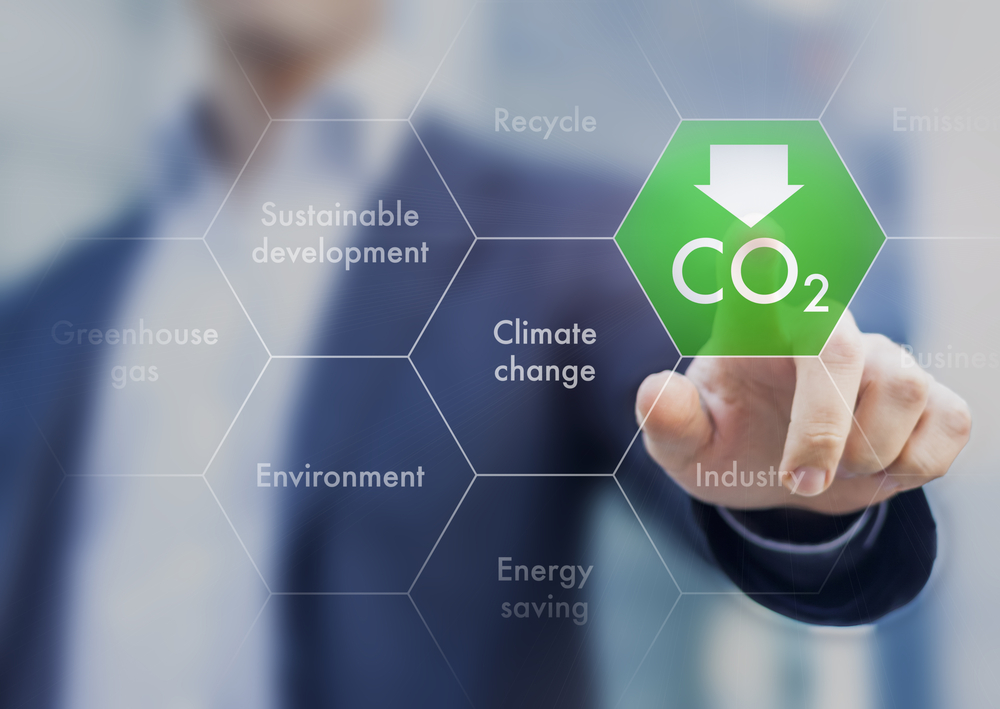According to a United Nations report released earlier this month, global warming is dangerously close to spiraling out of control. Thanks to human activity, record heatwaves, deadly storms, and other natural disasters are likely to only become worse. Unless immediate worldwide action is taken the average global temperature is likely to reach or cross the 1.5-degree Celsius warming threshold within the next 20 years. Heatwaves have killed hundreds in the American west this year; further warming could mean many more people might die by simply being outside in summer months.
Supply chains account for some 80 percent of carbon emissions. Given current global warming trends it’s only natural that sustainability law is increasingly becoming international law. The United Nations Environment Program works to strengthen sustainability practices—and in doing so, create more sustainable supply chains—at the country, regional and global level. 197 countries signed the Paris Agreement, a legally binding international treaty to limit climate change that took full effect in 2016.
There are regulations that provide proposed solutions at the national level as well. The US Environmental Protection Agency has long provided comprehensive guidance and resources to enable companies to reduce emissions and establish more sustainable supply chains. The guidelines recommend businesses create their own individual environmental management systems while also requiring companies that partner with them to make sustainability a priority. One example cited is IBM, which communicates with its partners that complying with local and national sustainability requirements is a condition of doing business with IBM. The company shares with its suppliers its own experience on how efficient and sustainable operations can result in decreased operational costs and greater profits. It also enhances the company’s brand, as consumers and investors increasingly look at environmental, social and governance (ESG) factors when choosing companies to buy from or invest in.
Given the urgency surrounding climate change, supply chain companies can expect more regulatory measures in the near future. The Biden administration’s proposed infrastructure bill not only includes funding to make supply chains more resilient but also more sustainable. There are provisions to provide funding for companies engaged in systematic recycling during the supply chain process. There may also be funding for requirements to greatly improve efficiency at ports, airports, warehouses, and distribution centers. These efficiencies would unclog supply chain bottlenecks and help reduce travel and idling times for vehicle fleets, resulting in a dramatic decrease of greenhouse gas emissions.
There are also new international regulations. In March of this year, the European Union adopted a proposal called the “EU Directive on Mandatory Human Rights, Environmental and Good Governance Due Diligence.” The directive establishes due diligence measures addressing the potential negative impacts of globalized business practices in fields of corporate responsibility. Germany has gone even further, requiring large companies to pay fines of up to up to 2% of their annual global revenues if they violate internationally established human rights and environmental laws.
Corporate Action and Sustainable Supply Chains
Will these regulations work? Many analysts are doubtful about the extent of their impact. A European Commission report found that only a third of businesses within the EU are currently conducting the appropriate due diligence measures established by the March directive. And while there has been a growing trend internationally towards adding more regulations and regulatory agencies, enforcement remains the biggest challenge to building a more sustainable global economy.
With this mind, logistics companies can still do their part to establish their own sustainable supply chains, from investing in technology to increase efficiency and reduce vehicle fleet fuel consumption, to utilizing sustainable products like biodegradable mushroom packaging
Finding environmentally responsible supply chain partners, as IBM does, is also crucial to creating sustainable supply chains. Plastic pallets, for example, are up to 35 percent lighter than heavier wooden pallets, resulting in lighter shipping loads, which in turn leads to decreased vehicle fleet fuel consumption and a lower carbon footprint. As this greenhouse gas calculator demonstrates, even small differences in transport weight can help reduce the harmful emissions that drive global warning. Lower fuel costs also result in a lower Total Cost of Business (TCOB).
Plastic pallets from the right pallet company can also be recycled. Wood pallets often wind up in landfills after their shorter lifespans. This contributes to pollution, while also possibly endangering marine life in oceans in the future. iGPS plastic pallets can be melted down and remade for future use, a completely closed loop within a more sustainable supply chain.
We are likely to see an increasing number of stricter environmental regulations, both nationally and globally. But that may not be enough to stave off the worse effects of climate change. Supply chain companies can help slow global warning by taking their own steps to create sustainable supply chains.
Companies committed to creating sustainable supply chains use iGPS plastic pallets for all their shipping needs. Our lightweight, recyclable plastic pallets help make greener supply chains and reduce your Total Cost of Business. For more information, contact us at 1-866-557-0047, email a specialist at switch@igps.net, or visit our contact page.



